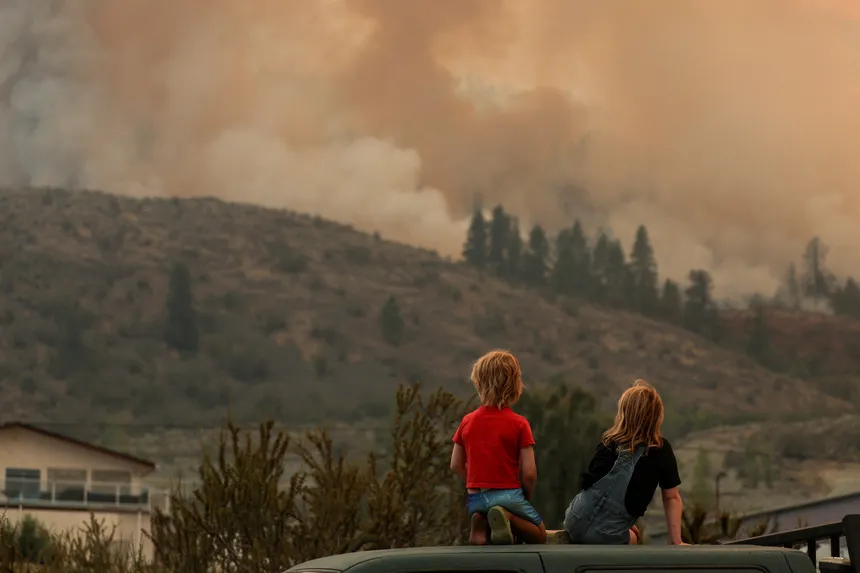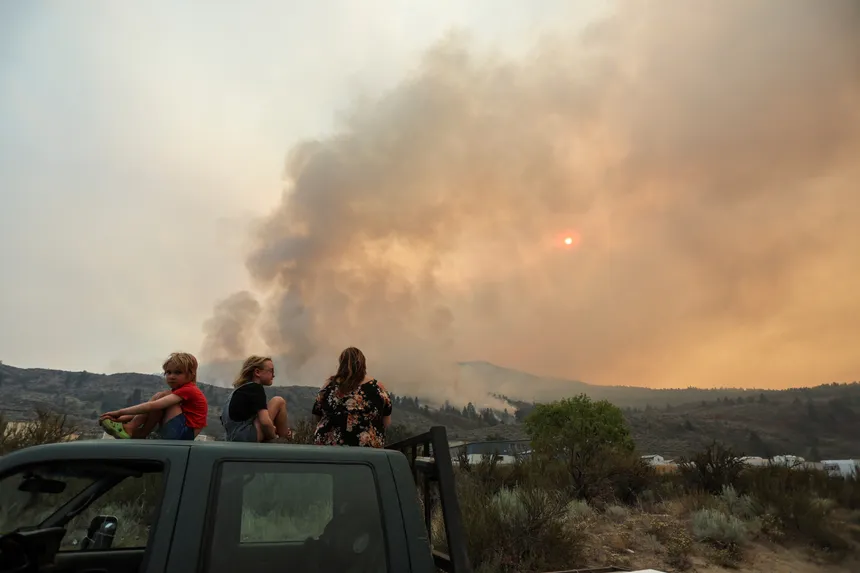The devastating wildfires that swept across Canada last year released a staggering amount of carbon dioxide into the atmosphere, according to a new study. The research, conducted by scientists at the World Resources Institute and the University of Maryland, found that the fires burned an area equivalent in size to the US state of West Virginia, releasing a massive 3.28 billion tons of heat-trapping carbon dioxide into the air.
The study’s lead author, James MacCarthy, a research associate with WRI’s Global Forest Watch, explained that forests play a crucial role in removing carbon from the atmosphere. “When trees burn, all the carbon that’s stored within them gets released back into the atmosphere,” he said. While some of this carbon can be recovered when trees regrow, MacCarthy noted that it has a significant impact on the global scale.
The wildfires in Canada were particularly devastating, making up 27% of global tree cover loss last year, compared to the usual 6%. The fires not only released massive amounts of carbon into the air but also had significant health consequences. Air quality was affected in populated areas, and more than 200 communities with over 232,000 residents had to be evacuated.

One expert, Mike Flannigan, a fire expert at Thompson Rivers University in British Columbia, estimates that the fires burned an area twice as large as that calculated by MacCarthy and Tyukavina. Flannigan attributed the exceptional fire season to climate change, which has led to warmer temperatures and drier conditions, making forests more susceptible to fires.
The study’s co-author, Alexandra Tyukavina, a geography professor at the University of Maryland, emphasized the need to focus on tree cover loss, rather than just forest fires in general. “The loss of that much forest is a very big deal, and very worrisome,” she said.
Another expert, Syracuse University geography and environment professor Jacob Bendix, noted that while forests will eventually regrow and sequester carbon, this process can take decades. “So, over the course of those decades, the net impact of the fires is a contribution to climate warming,” he said.
The study’s findings highlight the devastating impact of climate change on forests and the environment. As the world continues to warm, it is essential to take action to mitigate the effects of climate change and preserve the world’s forests.

